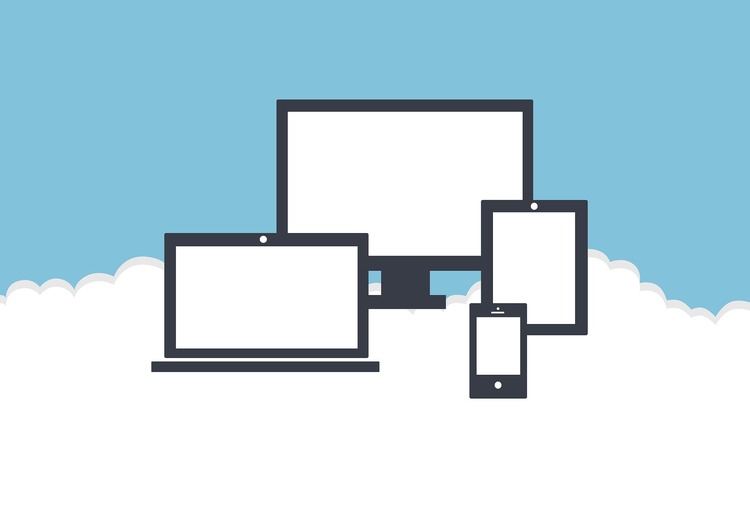Why the future of the contact centre lies in the cloud

Contact centres have always been a revenue driver for the channel. It’s one of the many markets that enjoys continuous growth. After all, more than 4% of the UK’s working population is employed at contact centres, and that number just increases year-on-year. As well as being a growth market, it’s also a market that is undergoing huge digital transformation.
It was over three years that analyst agency Forrester issued a report named ‘Contact centres must go digital or die,’ which outlined that firms' technology and staffing plans are not keeping up with consumer demand for digital customer services.
In order to satisfy the rising demand for support, contact centres and call centres must be able to scale rapidly, even as they develop new competencies. New digital channels and touchpoints are quickly emerging, changing the way consumers interact with brands. Multichannel, big data and the integration of the Internet of Things (IoT) also pose new requirements to the visibility of customer-related data.
The fact is that customer experience is paramount in order to stay competitive. So, put simply, for contact centres it’s a clear-cut situation; ‘go digital’ or face huge customer churn. With these market factors in full force, cloud adoption isn’t just an option, it’s a necessity to enable multichannel functionality and a future-proofed business. Customers want and expect a brand to have omnichannel communications capabilities. A traditional voice contact centre just doesn’t cut it anymore.
The most straightforward route toward digital excellence points directly to cloud technology. Modern customer communication services require solutions that are capable of integrating all communications processes into a singular platform, whilst at the same time being adaptable to changing demands.
As technology advances, businesses are realising that only cloud services offer the agility they need in order to adapt, with speed, to new clients, channels and requirements. Therefore there’s an increasing demand for contact centre services from the cloud. With time and cost pressures rising, contact centres are challenged to fulfil increasing customer demands and deliver even more business value in less time, and cloud platforms enable them to meet these ambitious goals.
The customer relationship management (CRM) sector also represents the largest segment in migration from traditional hardware or software products to cloud technology. As a result, it should come as no surprise that the contact centre industry is now following the lead, turning their backs on the obsolete infrastructure of on-premise systems in favour of modern, flexible, hosted technologies.
The future lies in omnichannel communication
The essential drivers for that trend are reduction of IT investment, operation and maintenance costs, as well as adaptability to perpetually changing market situations, maximum scalability and seamless integration with CRM applications. Furthermore, integration with cloud services is extremely straightforward, even more so when the contact centre and telephony systems are based on the same platform.
The scope for the channel this year, when it comes to contact centre market, cannot be understated. We may all be pushing different kinds of technology, but we are also consumers at the end of the day.
Just think about how you engage with a brand and what communications channels you expect? It’s certainly beyond voice, and we expect web chat and social media channels at a minimum. But looking even further ahead there are definitely opportunities with artificial intelligence (AI); contact centres must automate where possible to save costs, so it stands to reason the sector will also be a trailblazer for new voice recognition technologies.
The revenue opportunities are huge. Last year the UK Contact Centre Forum unveiled its latest market study, which found that 35% of contact centres still don’t have the technology to support multiple customer contact channels. That equates to thousands of contact centres that are yet to start their journey via the cloud and reap the productivity and functional benefits. With the opportunities primed, who knows what the future holds?
Written by Myles Leach, MD for NFON UK
source channelpro
Industry: Unified Communications News

Latest Jobs
-
- Senior Presales Consultant | Managed Security Services | London
- London
- N/A
-
Senior Presales Consultant – Managed Security Services Location: London-commutable (Hybrid) A well-established cyber consultancy is seeking a Senior Presales Consultant to drive growth across its managed security services / advisory portfolio. This hybrid role bridges commercial and technical expertise supporting solution design, shaping customer proposals, and guiding conversations from scoping through to delivery. Key experience: Background in managed security services, including SOC operations and threat detection Strong knowledge of cloud and on-prem security tooling (SIEM, EDR, IAM) Penetration testing Proven ability to translate technical concepts into clear business value Confident in customer-facing engagements and pre-sales delivery Experience contributing to bids, proposals, and RFI/RFP responses To find out more contact me on 07884666351 Visa sponsorship is unfortunately not available for this role.
-
- Senior SOC Engineer - Microsoft | Splunk. Permanent. London
- London
- N/A
-
Senior SOC Engineer – Hybrid London Type: Full-Time A well-established cyber security provider is seeking a Senior SOC Engineer to strengthen its managed services function. This role is ideal for someone with a strong operational background in SIEM and EDR tools who can confidently lead customer onboarding, fine-tune detection strategies, and act as a senior point of contact for technical escalations. You will need to be SC clearable. Bonus points if you have SC clearance currently. You will be responsible for ensuring smooth integration of new clients into the service, optimising alerting capabilities and delivering meaningful outcomes during investigations. This is a hands-on position, working closely with internal teams and external stakeholders to maintain robust security operations across multiple environments. Prior experience in a cyber-focused MSP or MSSP Strong hands-on capability with platforms such as Microsoft Sentinel, Defender for Endpoint, or similar Proficiency in scripting and query languages such as KQL or PowerShell Knowledge of detection logic, investigation workflows, and cloud-based infrastructure Confident communicator with strong documentation and reporting skills Apply today for more information.